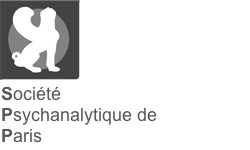|
Material Type:
|
Article : printed text
|
|
Title:
|
Developing homosexuality : Fritz Morgenthaler, junction points and psychoanalytic theory (2020)
|
|
Authors:
|
/
Aaron LAHL
, Author
/
Patrick HENZE
, Author
|
|
In :
|
Psychoanalysis and History (vol. 22, n° 1, 2020)
|
|
Article on page:
|
pp. 79-101
|
|
Languages:
|
English
|
|
Keywords :
|
MORGENTHALER, Fritz
;
Homosexualité
|
|
Abstract:
|
The Swiss psychoanalyst Fritz Morgenthaler (1919–84) is well known in German-speaking psychoanalysis as an early exponent of Heinz Kohut's self psychology, as an ethnopsychoanalytic researcher and as an original thinker on the topics of dreams, psychoanalytic technique and especially on sexuality (perversions, heterosexuality, homosexuality). In 1980, he presented the first psychoanalytic conception of homosexuality in the German-speaking world that did not view homosexuality in terms of deviance or pathology. His theory of ‘junction points’ (Weichenstellungen) postulates three decisive moments in the development of homosexuality: a prioritized cathexis of autoeroticism in narcissistic development, a Janus-facedness of homosexual desire as an outcome of the Oedipal complex and the coming out in puberty. According to Morgenthaler, this development can result in non-neurotic or neurotic homosexuality. Less known than the theory of junction points and to some degree even concealed by himself (his earlier texts appeared later on in corrected versions) are Morgenthaler's pre-1980 accounts of homosexuality which deserve to be called homophobic. Starting with a discussion of this early work, the article outlines Morgenthaler's theoretical development with special focus on his theory of junction points and how this theory was taken up in psychoanalytic theory.
|





